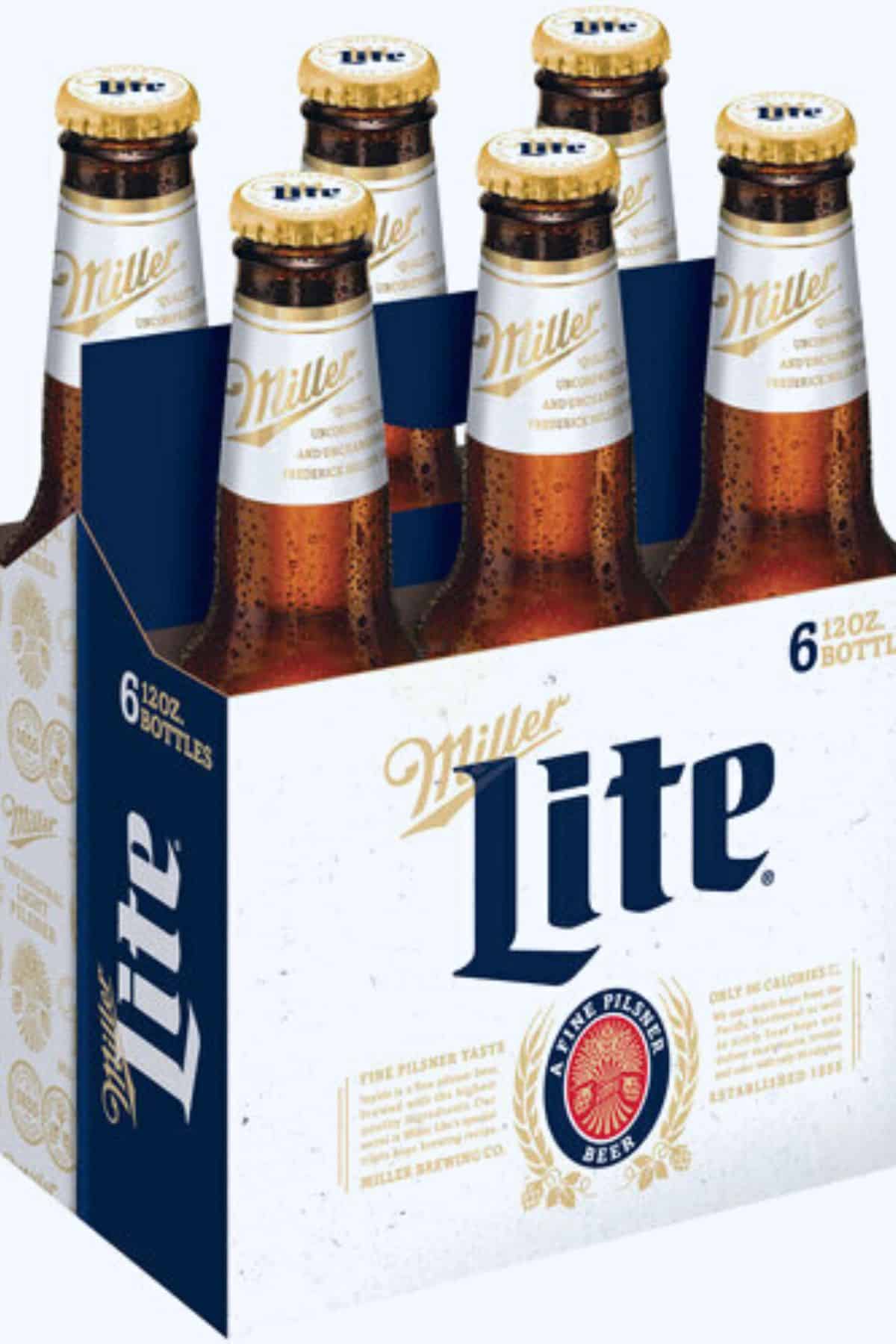Whether you’re watching the game or enjoying a night out, beer is a go-to drink for many. But if you’re gluten-free, you have to think twice before cracking open a cold one. So let’s look at the data and see, Is Miller Lite gluten-free? And if not, what beers are safe to enjoy?
This post may contain affiliate links. Please read our Disclosure Policy.

Quick Answer:
No, Miller Lite is not gluten-free. It’s made with barley malt, a gluten-containing grain. This light beer contains well over the FDA limit of 20 ppm (parts per million) of gluten, making it unsafe for those with Celiac disease, gluten intolerance, or a wheat allergy.
What Is Miller Lite?
Miller Lite beer is an alcoholic beverage created in 1975 to be the first light-lager beer. This beer was made to be less caloric and heavy than other popular beers around that time. It has a deep gold color that is lighter than regular beers.
Email This Recipe To Me!
The light beer is made from water, barley, yeast, hop extract, and corn syrup. There may be a few other additives for preservation, but these are the main ingredients used to make Miller Lite.
Despite its “light” reputation, Miller Lite still contains gluten due to the use of barley in the brewing process. It is not labeled gluten-free, nor does the company make any gluten-free beer options.
Surprisingly, there are some great craft beers with gluten-free options. This may be because the manufacturer is gluten-free, or they have found an innovative way to use different non-gluten grains.
Safer Alternatives: Gluten-Free Beer:
Always check the ingredients labels and the manufacturer’s website to ensure there is no gluten in the light or regular beer you are drinking.
- Bierly Brewing Felix Pilsner
- Glutenberg
- Bard
- New Grist
- Soonish
- New Planet
- Fat Randy’s IPA
- GroundBreaker
- Redbridge Lager
- Third Contact IPA
- Glutenator IPA
If you love beer, be sure to read, Is Corona Gluten Free, Is Omission Gluten Free, and Is Guinness Gluten Free?
⚠️ Always double-check product labels and manufacturing practices, since brands can change ingredients or processing methods without warning.

